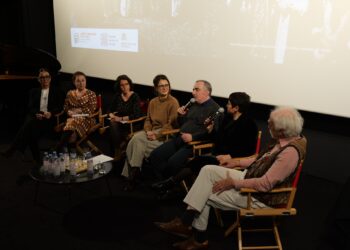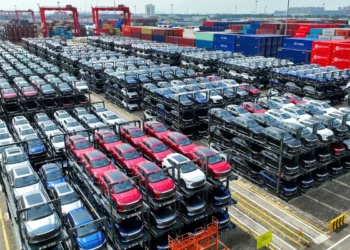In continuation of today’s daytime protest outside the Azerbaijan Embassy in Tbilisi, international climate activist Greta Thunberg, accompanied by her Georgian hosts, Tbilisi Pride and Georgian Greens, with members of Plant Based Treaty Georgia and Vegan Georgia, will join forces to protest COP29, which is currently being held in Baku, Azerbaijan.
This is part of a broader wave of global protests against the summit.
“We are here today to express our collective outrage at the scandalous decision to host COP29 in Azerbaijan. This decision blatantly disregards human rights and international law, and abandons the principles of climate justice,” said one Armenian protester to armradio. “Azerbaijan, with its abysmal human rights record, is not fit to host a world climate conference.”
The COP29 summit, which began on November 11, comes amid mounting concerns from scientists that record-breaking carbon dioxide emissions are putting humanity’s future in peril. The International Energy Agency (IEA) warned in 2021 that no new fossil fuel projects should be developed if the world hopes to bring CO2 emissions to zero by 2050.
Yet Azerbaijan, the host country, remains heavily dependent on fossil fuels, which account for 90% of its export revenues and 60% of its state income. The state-owned oil company SOCAR, which has a long-term partnership with BP, recently agreed to expand their joint ventures to explore new oil and gas fields.
In 2023, SOCAR allocated 97% of its capital expenditures to oil and gas projects. While the company did launch a “green energy division” following Azerbaijan’s appointment as COP29 host, promising investments in renewable energy such as wind, solar, and carbon capture technologies, SOCAR’s renewable energy operations are still negligible.
Join the protest at 7 p.m. in Pushkin Square (Liberty Square) to take a stand against climate inaction.
The Urgent Case for Cutting Animal Agriculture to Tackle Climate Change
For the past 27 years, the United Nations Climate Change Conference has largely ignored one of the biggest contributors to climate change: animal agriculture. While the conversation began to shift slightly at COP28 in Dubai, UAE, last year, it remains insufficiently addressed.
Food systems are responsible for a third of global greenhouse gas emissions, and even if we were to stop burning fossil fuels today, emissions from food systems alone could push global temperatures beyond the 1.5°C limit set by the Paris Agreement. The science is clear: the animal agriculture industry is a major driver of climate change, yet it continues to downplay its impact or even falsely present itself as part of the solution.
One recent comment from a Plant Based Treaty Georgia workshop captured the dilemma: “We won’t achieve the Paris Agreement’s goal of limiting global warming to 1.5°C unless we prioritize tree planting, and eliminating animal agriculture must be our final step.” Animal agriculture is the largest single source of methane emissions, a greenhouse gas roughly 80 times more potent than CO2, though it remains in the atmosphere for only about 12 years.
A staggering 36% of all anthropogenic methane emissions come from farmed animals, making it the single largest contributor to this harmful gas. Reducing methane emissions is our best—perhaps our only—chance of limiting global temperature rise to 1.5°C. By ending animal farming for food, we could free up 75% of agricultural land for rewilding and tree planting, which would take decades to mature but offer long-term environmental benefits.
Some animal farmers argue that this land can’t be repurposed for human-edible crops, but this is often a case-specific excuse. Even if true, land could be rewilded rather than used for animal farming. A mindset shift is needed to stop commodifying nature and begin focusing on restoring ecosystems. When planting trees, native species should be prioritized to support local biodiversity, just as a diverse range of plant-based foods should be grown to maintain healthy soils and a resilient food system—moving away from monocropping, which makes us more vulnerable to pests and diseases.
By Katie Ruth Davies
Related articles:
Tackling Climate Change: Understanding the Causes and How You Can Help
About COP and Why We Should Care














